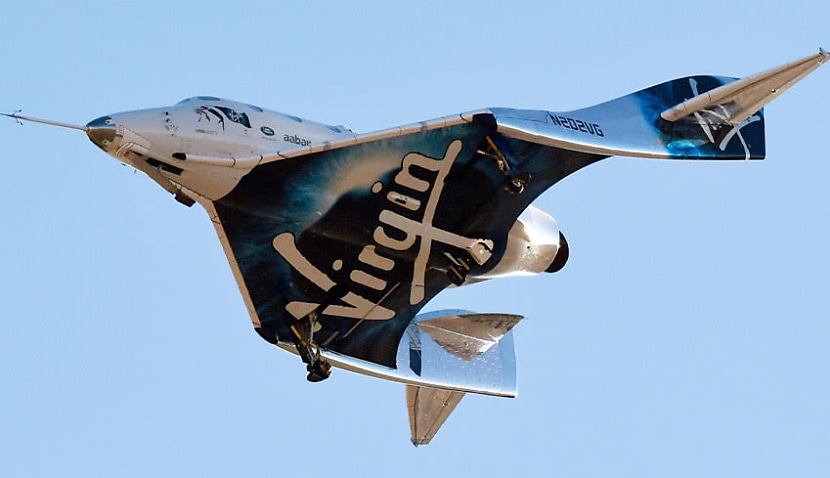
It comes after the Richard Branson-founded business completed its first commercial flight for the Italian Air Force last month.
The company said the new ‘Galactic 02’ mission will fly three private passengers into space and continue the “regular cadence” of spaceflights. It will mark Galactic’s seventh flight, second commercial launch and third spaceflight in 2023 alone.
The last mission took place on 29 June from New Mexico, and on board was a be a Virgin Galactic flight instructor and three Italians supporting a joint Italian Air Force and National Research Council (of Italy) research program called Virtute 1.
“Galactic 01 is our first commercial spaceflight, and we’re honoured to have been selected by the Italian Air Force and the National Research Council to support their first space research mission,” said Michael Colglazier, the CEO of Virgin Galactic, before its launch.
“Virgin Galactic’s research missions will usher in a new era of repeatable and reliable access to space for government and research institutions for years to come.”
Passengers included Pantaleone Carlucci, an engineer at the National Research Council of Italy; Lt. Col. Angelo Landolfi, a physician with the Italian Air Force and Col. Walter Villadei of the Italian Air Force, who is training for a mission to the ISS.
The three conducted experiments, including measuring cosmic radiation and collecting medical data.
That first commercial mission came two years after founder Richard Branson beat off competition from Jeff Bezos to go to space in Galactic’s fourth crewed spaceflight.
However, Virgin then subsequently had to carry out maintenance for both its mothership aircraft, VMS Eve, and its SpaceShipTwo vehicle after Branson’s test flight. It resumed flights earlier this year.
The good news comes months after sister company Virgin Orbit admitted defeat in its battle to find a rescue deal and said it would cease all operations. It had been hoping to launch from Toowoomba in Queensland next year.
Virgin Orbit agreed to sell all of its assets, including its rocket-launching 747, to four winning bidders for just $36 million — barely 1 per cent of the company’s valuation in 2021.
Its demise followed the failure of its landmark launch in Cornwall, south-west England, failing in January. It had been targeting future launches in multiple countries, including Australia.
ELA executive chairman Michael Jones told Space Connect he believes Virgin Orbit’s system of launching rockets was not as reliable as it seemed.
Jones, who is also the founder of Australian airline Rex, said there’s “a lot of complexity that doesn’t appear to be there” and hinted traditional vertical blast-offs are more successful.
“It sounds great, but it’s a challenging thing they’re doing,” he said.
“We track about 76 rocket companies globally. That’s a mixture of vertical, which is about 90 per cent of the market, and horizontal, which is a further 7 per cent. I think about 25 of those are ‘real’.
“And by that, I mean real in their financial capacity, technology, and having a business plan for a successful solution.” Of the 25 remaining in his system, he predicts only 11 will survive.

Adam Thorn
Adam is a journalist who has worked for more than 40 prestigious media brands in the UK and Australia. Since 2005, his varied career has included stints as a reporter, copy editor, feature writer and editor for publications as diverse as Fleet Street newspaper The Sunday Times, fashion bible Jones, media and marketing website Mumbrella as well as lifestyle magazines such as GQ, Woman’s Weekly, Men’s Health and Loaded. He joined Momentum Media in early 2020 and currently writes for Australian Aviation and World of Aviation.
Receive the latest developments and updates on Australia’s space industry direct to your inbox. Subscribe today to Space Connect here.









